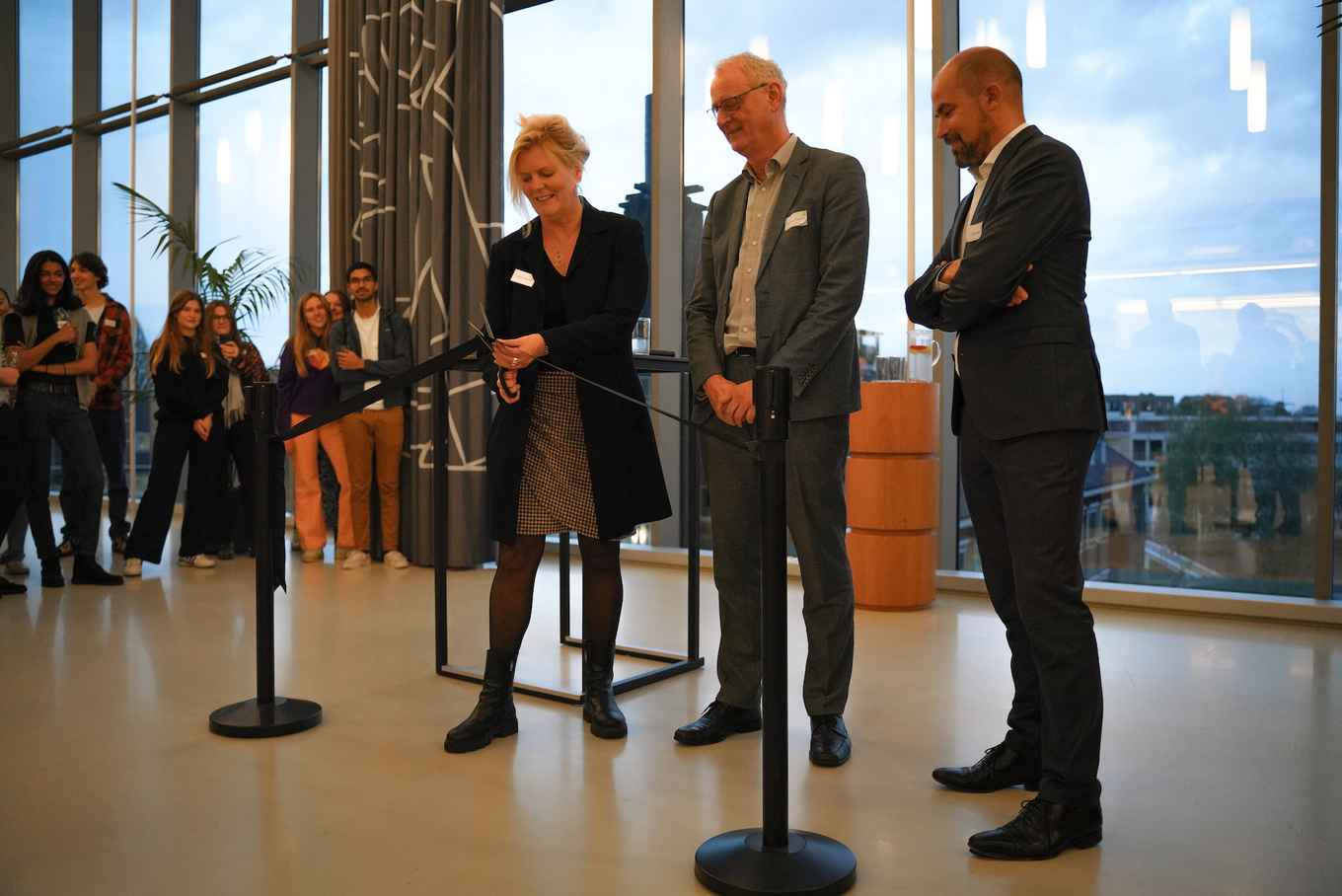Launch of new bachelor program Computational social science
17 November 2022

The new UvA Bachelor program 'Computational Social Science' is an interfaculty program that unites aspects from mathematics and computer science, and from the social sciences and humanities. The program began in September 2022 with over eighty students, some sixty of them from abroad and twenty from the Netherlands. Work is also underway on a second new bachelor program with the provisional name 'Science, Technology and Innovation'. If all goes well, this program could start in September 2023.
From the Informatics Institute, Jacobijn Sandberg, director of the College of Informatics, is involved in setting up both new undergraduate programs. She talks about the how and why of both programs.
What is the bachelor program 'Computational social science' about and why is it needed?
'Modern technology touches on a lot of aspects. What is the impact on society? How does technology change a culture and how can we change a culture? And of course there are typical computer science aspects, such as: How are information systems put together? What can we do with data? How do we use AI responsibly? The bachelor program 'Computational social science' covers all these aspects.
The program lasts three years and throughout the program several learning lines run parallel to each other: digital expertise, social science expertise and expertise on bringing about change in society. Everything is aimed at using computational systems to contribute something good to the world.'
What didactic approach do you use?
'The program is project-driven. We don't work with classical subjects that are only taught in class, but with projects that last a full semester. Students carry out those projects in groups, under the guidance of a tutor. They learn what they need at that moment for their project, which is called 'just-in-time learning'. Academic staff from the three participating faculties provide the lectures within the different learning lines. If they need to collect data, they learn about different ways to do that. If they need to create visualizations, they will learn, for example, how to visualize statistical outcomes in the Python programming language.
The students are required to be physically present for twenty to thirty hours per week. The idea is that they have to learn together and not only by themselves at home. Experienced teachers guide the students throughout the program. At the end of the three years, they do a fairly large undergraduate project in which all the learning lines come together. And of course the program connects to UvA master programs such as computational science, sociology or political science.'
Do you have examples of projects the students are working on?
'We start with two projects: one on climate change and one on surveillance. The project on climate change revolves around the question of how to deal with the fact that our water is becoming increasingly polluted, affecting biodiversity. Students are studying pollution caused by residual particles of paint entering the water and are working with an external company to identify and evaluate possible solutions. There is a lot of interest from companies, non-profit organizations and governments to do projects with Computational Social Science students.'
What is the relationship between education and research at the program?
'Obviously, there are all kinds of links between the 'Computational social science' program and what we do in computer science in the areas of computational science, AI and data science. Hopefully there will also be a new research group that will focus specifically on computational social science, but how exactly the relationship between education and research will look like, will gradually take shape over the next few years.'
What can you already tell us about the second new Bachelor program, 'Science, Technology and Innovation'?
'The central idea behind the program is that we cannot leave engineering and technical applications to the technical universities alone. In 2019, the Van Rijn Commission concluded, among other things, that there is such a lack of technical knowledge and expertise in the Netherlands that general universities should also do more about technology. We want to do that at UvA in a way that complements what the technical universities are doing. The course we are developing connects computer science, mathematics, physics, chemistry and biology, and is strongly intertwined with research themes such as sustainability and health.'
Do you have an example of that?
'Research into new sustainable materials is a good example. True, we don't build cars on solar cells at the UvA, but we do have the knowledge and skills to combine different disciplines to contribute to a more sustainable world. Actually, FNWI already has a minor program with the same name: 'Science, Technology and Innovation'. With this minor we are already preparing for the new Bachelor-program.'